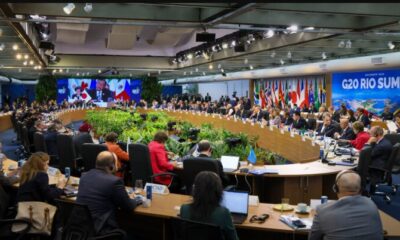World News
Florida Shooting Updates: 3 Sailors Who Were Killed Are Identified
-

 Entertainment1 week ago
Entertainment1 week agoNaftunes Productions: Shaping the Future of Animation in Kenya
-

 Tech4 days ago
Tech4 days agoThe AI Arms Race: How Cyber-Defenders are Using AI to Fight AI-Generated Threats
-

 Tech4 days ago
Tech4 days agoThe Invisible Hand of AI: How Machine Learning is Building the Resilient, Self-Healing Supply Chains of Tomorrow
-

 General News2 days ago
General News2 days agoLamine Yamal: The Teen Who’s Redefining Spanish Football
-

 Business News1 day ago
Business News1 day agoBRICS Expansion: New Members, Currency Dreams, and a Bold Bid to Eclipse the West
-

 Jobs1 day ago
Jobs1 day agoUnveiling Mohamed Salah: The Egyptian King’s Secrets That Have the World Googling Non-Stop
-

 General News2 days ago
General News2 days agoMigration & Refugee Crises: Europe and the Americas Grapple with New Humanitarian Pressures
-

 Business News1 day ago
Business News1 day agoGlobal South Rising: Africa, Asia, and Latin America Demand a Louder Voice in World Governance


